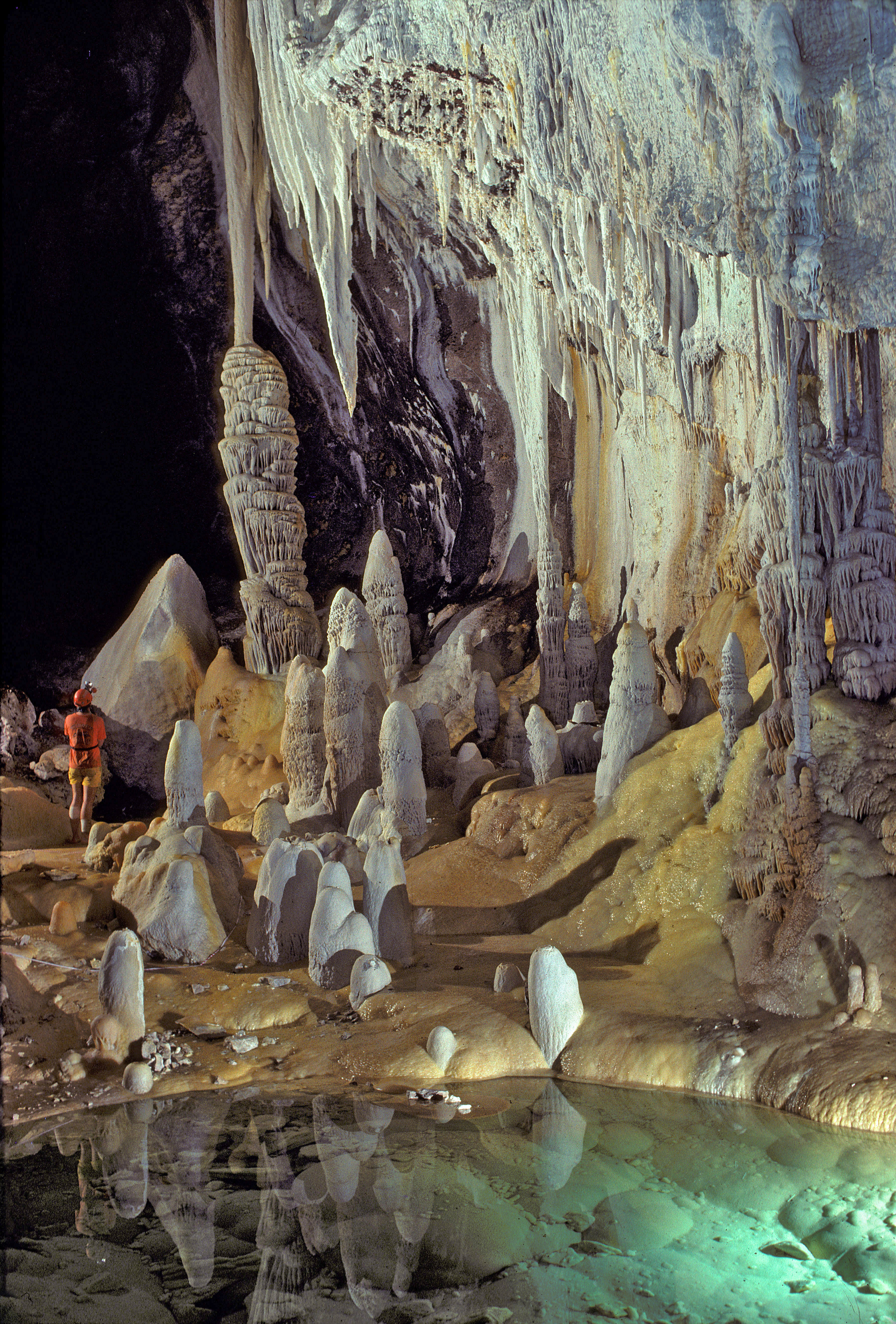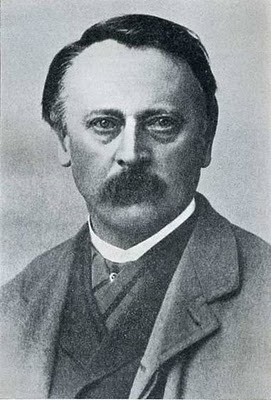|
Verband Der Deutschen Höhlen- Und Karstforscher
The German Speleological Federation (german: Verband der deutschen Höhlen- und Karstforscher, VdHK) is an umbrella organisation for speleologists in Germany and a point of contact for the issues connected with caves and karst landscapes. 90 regional clubs (especially caving clubs) and groups, as well as 5 state federations and over 500 individual members, belong to the Federation. Its main aims are the exploration and conservation of caves and karst features in Germany. Cave exploration in Germany is a voluntary activity that is carried out with the involvement of the ''VdHK'' and its members. Their main concern is to look after natural karst and cave terrain in a responsible manner. The Federation is a voluntary association. The Federation was founded in 1955 at Donauwörth and its head office is in Munich. The Federation sees itself as the successor organisation to the Federation of German Speleologists (''Hauptverbandes Deutscher Höhlenforscher''), which existed from 1922 to 19 ... [...More Info...] [...Related Items...] OR: [Wikipedia] [Google] [Baidu] |
Umbrella Organisation
An umbrella organization is an association of (often related, industry-specific) institutions who work together formally to coordinate activities and/or pool resources. In business, political, and other environments, it provides resources and often identities to the smaller organizations. In this kind of arrangement, it is sometimes responsible, to some degree, for the groups under its care. Examples * AFL–CIO and other national trade union centers * DD172 * Department of Public Safety * European Armenian Federation for Justice and Democracy * European Music Council * European Welding Federation, European Federation for Welding, Joining and Cutting (EWF) * Federation of Poles in Great Britain * Federation of Student Islamic Societies * Independent Sector * National Retail Federation * National Wrestling Alliance * Open Source Geospatial Foundation * Software in the Public Interest * UEFA * Ulster Defence Association *United Way * Yamaguchi-gumi * National Federation of Coffee ... [...More Info...] [...Related Items...] OR: [Wikipedia] [Google] [Baidu] |
Caves
A cave or cavern is a natural void in the ground, specifically a space large enough for a human to enter. Caves often form by the weathering of rock and often extend deep underground. The word ''cave'' can refer to smaller openings such as sea caves, rock shelters, and grottos, that extend a relatively short distance into the rock and they are called ''exogene'' caves. Caves which extend further underground than the opening is wide are called ''endogene'' caves. Speleology is the science of exploration and study of all aspects of caves and the cave environment. Visiting or exploring caves for recreation may be called ''caving'', ''potholing'', or ''spelunking''. Formation types The formation and development of caves is known as ''speleogenesis''; it can occur over the course of millions of years. Caves can range widely in size, and are formed by various geological processes. These may involve a combination of chemical processes, erosion by water, tectonic forces, microorgani ... [...More Info...] [...Related Items...] OR: [Wikipedia] [Google] [Baidu] |
Karst
Karst is a topography formed from the dissolution of soluble rocks such as limestone, dolomite, and gypsum. It is characterized by underground drainage systems with sinkholes and caves. It has also been documented for more weathering-resistant rocks, such as quartzite, given the right conditions. Subterranean drainage may limit surface water, with few to no rivers or lakes. However, in regions where the dissolved bedrock is covered (perhaps by debris) or confined by one or more superimposed non-soluble rock strata, distinctive karst features may occur only at subsurface levels and can be totally missing above ground. The study of ''paleokarst'' (buried karst in the stratigraphic column) is important in petroleum geology because as much as 50% of the world's hydrocarbon reserves are hosted in carbonate rock, and much of this is found in porous karst systems. Etymology The English word ''karst'' was borrowed from German in the late 19th century, which entered German much earlier ... [...More Info...] [...Related Items...] OR: [Wikipedia] [Google] [Baidu] |
Voluntary Association
A voluntary group or union (also sometimes called a voluntary organization, common-interest association, association, or society) is a group of individuals who enter into an agreement, usually as volunteering, volunteers, to form a body (or organization) to accomplish a purpose. Common examples include trade associations, trade unions, learned society, learned societies, professional associations, and environmental movement, environmental groups. All such associations reflect freedom of association in ultimate terms (members may choose whether to join or leave), although membership is not necessarily voluntary in the sense that one's employment may effectively require it via occupational closure. For example, in order for particular associations to function effectively, they might need to be mandatory or at least strongly encouraged, as is true of trade unions. Because of this, some people prefer the term common-interest association to describe groups which form out of a common i ... [...More Info...] [...Related Items...] OR: [Wikipedia] [Google] [Baidu] |
Donauwörth
Donauwörth () is a town and the capital of the Donau-Ries district in Swabia, Bavaria, Germany. It is said to have been founded by two fishermen where the rivers Danube (Donau) and Wörnitz meet. The city is part of the scenic route called "Romantische Straße" (Romantic Road). The city is situated between Munich and Nuremberg, 46 km north of Augsburg. History Donauwörth grew up in the course of the 11th and 12th centuries under the protection of the castle of Mangoldstein, became in the 13th century a seat of Duke Ludwig II of Bavaria, who, however, soon withdrew to Munich to escape from his wife, Duchess Maria of Brabant, whom he had there beheaded on an unfounded suspicion of infidelity. The town received the freedom of the Holy Roman Empire in 1308, and maintained its position in spite of the encroachments of Bavaria till 1607, when the interference of the Protestant inhabitants with the abbot of the Heilig-Kreuz called forth an imperial law authorizing the duke of Bav ... [...More Info...] [...Related Items...] OR: [Wikipedia] [Google] [Baidu] |
Munich
Munich ( ; german: München ; bar, Minga ) is the capital and most populous city of the States of Germany, German state of Bavaria. With a population of 1,558,395 inhabitants as of 31 July 2020, it is the List of cities in Germany by population, third-largest city in Germany, after Berlin and Hamburg, and thus the largest which does not constitute its own state, as well as the List of cities in the European Union by population within city limits, 11th-largest city in the European Union. The Munich Metropolitan Region, city's metropolitan region is home to 6 million people. Straddling the banks of the River Isar (a tributary of the Danube) north of the Northern Limestone Alps, Bavarian Alps, Munich is the seat of the Bavarian Regierungsbezirk, administrative region of Upper Bavaria, while being the population density, most densely populated municipality in Germany (4,500 people per km2). Munich is the second-largest city in the Bavarian dialects, Bavarian dialect area, ... [...More Info...] [...Related Items...] OR: [Wikipedia] [Google] [Baidu] |
Union Internationale De Spéléologie
International Union of Speleology (french: links=no, Union Internationale de Spéléologie, UIS) is a scientific non-governmental organization dedicated to the international promotion and coordination of cave and karst research. Founded in 1965, UIS is a member of the International Science Council in Paris and cooperates with UNESCO. In 2021-2022, UIS organized the ''International Year of Caves and Karst''. History The international speleological community, mostly Europeans, agreed in a meeting in 1949 in Valence-sur-Rhone, France, to hold international speleological congresses beginning in Paris in 1953. These efforts continued during the Cold War. At the 4th International Congress of Speleology in Postojna/Ljubljana (1965), a group of speleologists proposed to establish an association that would bring together scientists and cavers on both sides of the Iron Curtain and coordinate their activities. At the closing ceremony of this congress, the UIS was finally launched. However ... [...More Info...] [...Related Items...] OR: [Wikipedia] [Google] [Baidu] |
Caving Club
There are a number of caving organizations throughout the world. UIS The Union Internationale de Spéléologie (UIS) is the international umbrella organization for caving and speleology. Austria The Austrian Speleological Association, formed in 1949, represents over 20 caving clubs, with some 2500 members and about 30 show caves in Austria, and is the Austrian member of UIS and FSE. Australia *Australian Speleological Federation (ASF) is a national organisation formed in 1956. It is an environmental organisation promoting the protection of Australia's unique cave systems. Bosnia and HerzegovinaThe Speleological Society Ponir (SD Ponir) was founded in 1984 in Banja Luka. The main activities of the society are cave exploration and research. In furtherance of this, SD Ponir conducts training of new members through courses and caving expeditions. The tra ... [...More Info...] [...Related Items...] OR: [Wikipedia] [Google] [Baidu] |
Caving Organizations
There are a number of caving organizations throughout the world. UIS The Union Internationale de Spéléologie (UIS) is the international umbrella organization for caving and speleology. Austria The Austrian Speleological Association, formed in 1949, represents over 20 caving clubs, with some 2500 members and about 30 show caves in Austria, and is the Austrian member of UIS and FSE. Australia *Australian Speleological Federation (ASF) is a national organisation formed in 1956. It is an environmental organisation promoting the protection of Australia's unique cave systems. Bosnia and HerzegovinaThe Speleological Society Ponir (SD Ponir) was founded in 1984 in Banja Luka. The main activities of the society are cave exploration and research. In furtherance of this, SD Ponir conducts training of new members through courses and caving expeditions. The tra ... [...More Info...] [...Related Items...] OR: [Wikipedia] [Google] [Baidu] |
Nature Conservation Organisations Based In Germany
Nature, in the broadest sense, is the physical world or universe. "Nature" can refer to the phenomena of the physical world, and also to life in general. The study of nature is a large, if not the only, part of science. Although humans are part of nature, human activity is often understood as a separate category from other natural phenomena. The word ''nature'' is borrowed from the Old French ''nature'' and is derived from the Latin word ''natura'', or "essential qualities, innate disposition", and in ancient times, literally meant "birth". In ancient philosophy, ''natura'' is mostly used as the Latin translation of the Greek word ''physis'' (φύσις), which originally related to the intrinsic characteristics of plants, animals, and other features of the world to develop of their own accord. The concept of nature as a whole, the physical universe, is one of several expansions of the original notion; it began with certain core applications of the word φύσις by ... [...More Info...] [...Related Items...] OR: [Wikipedia] [Google] [Baidu] |
Scientific Organisations Based In Germany
Science is a systematic endeavor that builds and organizes knowledge in the form of testable explanations and predictions about the universe. Science may be as old as the human species, and some of the earliest archeological evidence for scientific reasoning is tens of thousands of years old. The earliest written records in the history of science come from Ancient Egypt and Mesopotamia in around 3000 to 1200 BCE. Their contributions to mathematics, astronomy, and medicine entered and shaped Greek natural philosophy of classical antiquity, whereby formal attempts were made to provide explanations of events in the physical world based on natural causes. After the fall of the Western Roman Empire, knowledge of Greek conceptions of the world deteriorated in Western Europe during the early centuries (400 to 1000 CE) of the Middle Ages, but was preserved in the Muslim world during the Islamic Golden Age and later by the efforts of Byzantine Greek scholars who brought Greek man ... [...More Info...] [...Related Items...] OR: [Wikipedia] [Google] [Baidu] |

.jpg)
.jpg)

.jpg)
